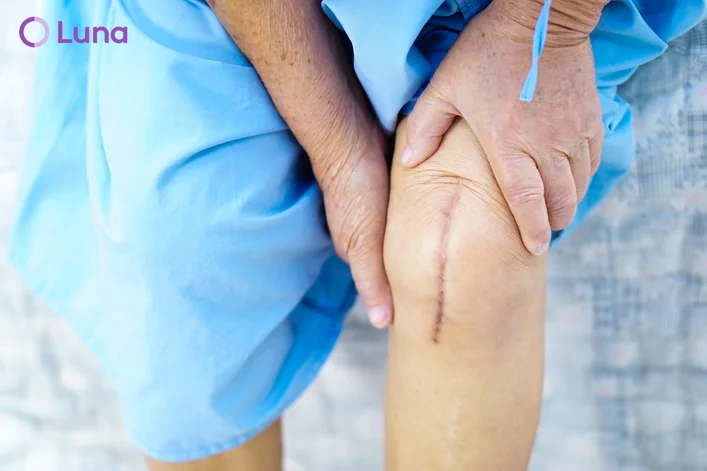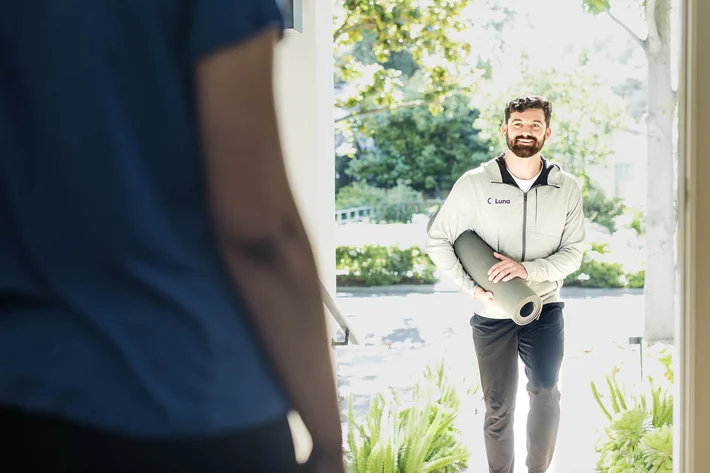
Meet with the best labral tears physical therapists in Chapel Hill, North Carolina
Chapel Hill, North Carolina, Luna’s physical therapists specialize in treating patients recovering from hip or shoulder labral tears. With effective manual therapy, safe exercise routines, and injury prevention education, our PTs can help you return to the activities you love — pain-free.
Best of all, with Luna, patients can receive physical therapy for labral tears right at home. Our physical therapists come to you — it’s physical therapy, delivered.

What is a labral tear?
The labrum is a piece of cartilage that runs along the rim of the shoulder or hip joint, cushioning and keeping these joints in place. Injury or overuse can cause this cartilage to pull away from the socket, producing what’s called a labral tear.
Labral tears often don’t exhibit any symptoms, which can make them difficult to diagnose. The most common symptoms are a deep ache in the affected joint, a clicking sensation when moving the joint, or weakness and stiffness in the affected joint.
A torn labrum cannot heal on its own. For this reason, surgery is commonly opted. However with physical therapy alone, patients are often able to regain a satisfactory level of function. Patients who have experienced more serious injuries will often undergo surgery, and will need to complete several months of physical therapy as part of their post-operative recovery.
Source: Move Forward

What causes a labral tear?
Labral tears occur when part of the labrum separates from the socket — usually the result of excessive trauma to the joint. Repeated twisting, running, and ‘cutting’ — motions performed in sports like soccer, hockey, and skiing — can all cause labral tears. Patients with genetic abnormalities in the bone around their shoulder and hip joints are more likely to experience labral tears.
This risk is also heightened in patients with above-average tightness or weakness in the hip or shoulder. Improper technique when performing repetitive activities can also be a risk factor.
The most common causes of a labral tear include:
- Bony abnormalities in the joint
- Muscle weakness or tightness
- Participation in activities that require twisting or ‘cutting’ motions


















